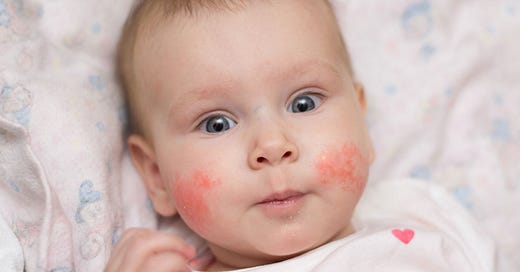Is a Child's Hives a Sign of Something Serious?
Children's skin conditions tend to be frightening. Parents are alarmed when red, swollen welts suddenly erupt on the body of their child. Such reactions are typical, but they must not be overlooked. Pediatric Dermatology is a specialty that deals with diagnosing and treating skin conditions in children, infants, and adolescents. Specialists in pediatric dermatology are trained to recognize whether a condition is minor or an indication of something more serious. Parents can learn how to identify whether a normal rash or a more critical skin reaction is occurring.
A child's skin is delicate. It is quick to respond to allergens, infections, or even stress. Rashes appear and then vanish as quickly. For this reason, it is essential to monitor new skin symptoms closely. Some will need only a light touch. Others will require immediate medical care. Knowing the reasons for them will allow you to react accordingly.
What Are Hives and What Causes Them?
Hives, or urticaria, are red, itchy, and occasionally swollen lumps that suddenly erupt on the skin. They tend to be in groups and shift from one area to another. Hives are usually an acute allergic reaction in most instances. The usual causes are certain foods, bites from insects, medications, or even an abrupt temperature change.
At times, emotional distress or illness can also cause hives. The body discharges histamine, and the skin reacts. These may last for a few hours or a few days. Antihistamines usually subside itching and swelling. However, hives lasting more than six weeks are referred to as chronic hives. These need medical assessment. Recurring or chronic hives can be a sign of an underlying health issue.
Signs That Require Immediate Medical Care
All hives are not innocuous. Some can be a sign of a serious condition, particularly if accompanied by additional symptoms. Be wary of swelling of the eyes or lips, difficulty breathing, vomiting, or dizziness. These are possible indications of an allergic reaction to anaphylaxis. This is a medical emergency, and you should receive prompt treatment. Call for assistance or visit the closest emergency facility.
Another warning sign is when hives keep recurring without any obvious reason. This may be a sign of an autoimmune disease or possibly a viral or bacterial infection. In unusual cases, hives can be associated with more serious health issues, including thyroid disease or liver disease. Don't brush off persistent or unusual skin changes in your child.
The Role of Pediatric Specialists
When your child experiences recurrent or severe skin problems, it is essential to consult a specialist in pediatric dermatology. They specialize in working with children and understand how skin diseases can occur at an early stage. They employ child-friendly techniques to analyze the skin, identify the cause, and suggest treatment. In certain instances, they may recommend allergy tests or blood tests to identify the underlying cause.
Parents should also be aware that some children may be sensitive to products such as sunscreen, laundry detergent, or soap. A log of when hives occur and what your child came in contact with will assist the doctor in identifying a pattern. Never attempt random over-the-counter remedies or adult medication without the consultation of a professional.
Why Hives Should Never Be Ignored
Hives may seem like a mild problem, but they deserve attention. Ignoring frequent episodes could delay the diagnosis of a more serious health issue. Tracking the frequency, duration, and triggers of hives helps determine the best approach. If your child scratches too much, it can lead to broken skin, infections, or discomfort. Don't rely on temporary relief. Focus on identifying the cause and preventing future outbreaks.
Understanding how hives behave is the first step. They are volatile but can be controlled with proper treatment. Fixing the surface doesn't cure the complete issue. That's why healthcare assessment is usually needed, particularly when symptoms recur frequently or intensify.
Conclusion: When in Doubt, Get Help
If children have new or frequent skin problems, trust your instincts. It's always best to get a professional opinion. Pediatric dermatology specialists provide answers and relief. Even if it's nothing, peace of mind is essential. Comfort and safety come first for your child. Hives may be temporary, yet they may be a warning. Stay informed, act promptly, and avoid taking chances with your child's health.



